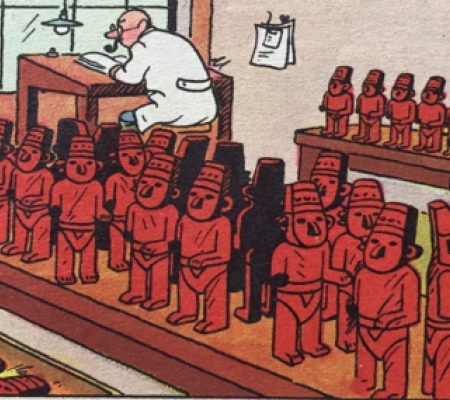Although in modern culture copies tend to be considered devoid of creativity and thus of value, it was not always the case; in the past, copies and the practice of copying were viewed favorably. It is only as authenticity and originality played an ever more determining role in Western culture, that their valence shifted towards the negative and even damning. Hergé's Adventures of Tintin and in particular Le Sceptre d'Ottokar, an album contemporary with Walter Benjamin's essay on mechanical reproduction, illustrate the anxiety that underlies the modern conception of the copy.
Véronique Plesch is Professor of Art History at Colby College (Watervile, Maine). Her publications (books, edited volumes, and articles) have dealt with subjects that include Passion iconography, narrative fresco cycles, art in the Duchy of Savoy, late-medieval Passion plays, early modern graffiti, contemporary art and book arts, with a steady focus on word and image studies.
Plesch’s books include Le Christ peint: Le cycle de la Passion dans les chapelles peintes du XVe siècle dans les Etats de Savoie (Société Savoisienne d’Histoire et d’Archéologie, 2004); and Painter and Priest: Giovanni Canavesio’s Visual Rhetoric and the Passion Cycle at La Brigue (University of Notre Dame Press, 2006). She also co-edited The Cultural Processes of Appropriation (special issue of the Journal of Medieval and Early Modern Studies, 2002); Orientations: Space/Time/Image/Word (Brill, 2005); Elective Affinities: Testing Word and Image Relationships (Rodopi, 2009); Efficacité/Efficacy: How To Do Things With Words and Images? (Brill, 2011); and The Imaginary: Word and Image/L’Imaginaire: texte et image (Brill, 2015).


